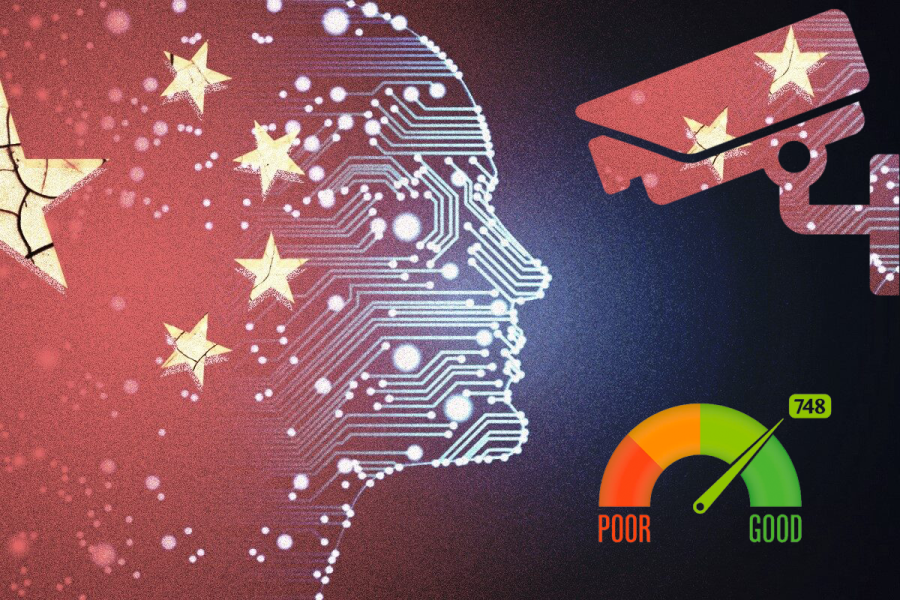China’s Social Credit System: A Dystopian Nightmare or Egalitarian Dream?
February 24, 2025
The Chinese social credit system was proposed in 2014 to enhance government control and promote social complacency. This system, affecting individuals, institutions, and businesses, predicates itself on incentives and deterrents that impact all aspects of life. Lower scores are incurred from any behaviors deemed unacceptable by the government. A reduced social credit score can elicit inspections of one’s company, travel bans, reduced employment opportunities, slowed internet speed, and public shaming. On the other hand, those with higher scores, accumulated through a life and career deemed acceptable by the government, enjoy expedited government services, discounts, lower interest rates, and free access to public transportation.
Many have misconceptions regarding the implementation and progress of this system. The Chinese government, contrary to public opinion, has yet to achieve a unified social credit system. Local governments and private enterprises are implementing their own systems in certain regions, and there is seldom communication between them. Furthermore, this system is perceived by many people in China as a mere extension of cultural norms in China, regarding transparency and the promotion of moral behavior. While this cultural practice may seem idiosyncratic to Americans, the system receives wide approval in China.
With the facts laid out, one must consider if the Chinese social credit system may be a model for a more egalitarian and altruistic form of social and economic interactions globally. Ostensibly, using government services and infrastructure to incentivize good behavior and deter bad behavior is an efficient allocation of government resources. In some respects, this system is nothing more than an expansion of fiscal credit systems throughout the world. However, China’s tactics of gathering information through invasive surveillance cameras and direct data uploads render it far from perfect. The social credit system works in tandem with Skynet and other Chinese mass surveillance systems to implement artificial intelligence, data analysis, and facial recognition within the social credit system. Innovative Chinese technology, such as the 500-megapixel “super camera,” can instantaneously identify a person in a crowd. Many speculate that in part due to the implementation of the social credit system, many Chinese cities have become the most monitored in the world. Some estimates claim that one camera is assigned to monitor every two people. For now, it is too early to tell whether this system will pave the way for a novel governing structure or become the dystopian nightmare that many have foreshadowed.







